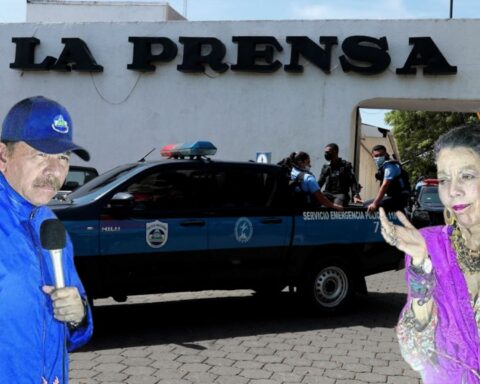The activist and released political prisoner Tamara Dávila managed to reunite with her daughter this Thursday, April 6 at night, after almost two months after the Ortega y Murillo regime decided to exile her to the United States and strip her of her nationality.
“Today, Thursday, April 6, at 8pm, I was finally able to meet my free daughter again, after a year and 8 months of being separated. I am deeply grateful to the government and people of the United States for facilitating this reunification, which I hope will soon arrive for all the families of people released from political prisons,” Dávila said when he was reunited with his daughter.
Related news: Tamara Dávila before the OAS: “Nicaragua is still under terror”
The human rights defender also thanked the company, solidarity and affection of the people who have fought for freedom and family reunification.
Images of the emotional meeting circulated through social networks, in which the released politician can be seen crying with happiness for hugging her little daughter after all the time of forced separation.
Dávila recently told the member countries of the Organization of American States (OAS) that “in Nicaragua the terror continues; 10 out of every 100 Nicaraguans have fled the country in the last five years; there are more than 37 political prisoners, including Bishop Rolando Álvarez. They suffer psychological and physical torture on a daily basis. We cannot forget them. Martin Luther King said that “injustice anywhere is a threat to justice everywhere.” This then falls to the international community and particularly to the Americas.”
Dávila presented her testimony of the imprisonment and exile to which she has been subjected, during a session of the OAS Permanent Council in the chair of the Chilean ambassador. Nicaragua experienced a similar situation in 1974, when the country was bled dry by the other dictatorship, that of the Somozas. On that occasion, the priest Miguel de Escoto (RIP) went to the OAS to denounce Somocismo, in a chair lent by Panama.
She added that during her detention she feared for her life and then she would be separated from her daughter and not see her for 14 months. “Imagine a 5-year-old girl who witnesses the violent assault of her house, the place that should be the safest for her. Armed people who record everything, who take her stories, her birth diary, her music, and who also take her mother. She constantly asked her grandmother “Grandma is my mom dead? Is that why I can’t see it?” That horror was experienced by dozens of girls, boys and families in Nicaragua,” Dávila lamented in a story that moved the ambassadors who were listening to her.








